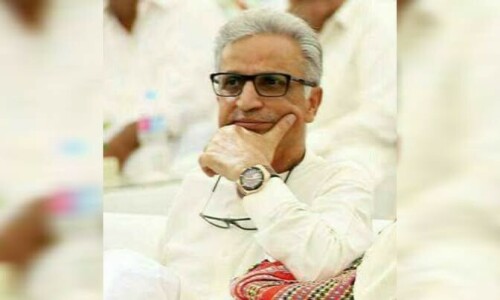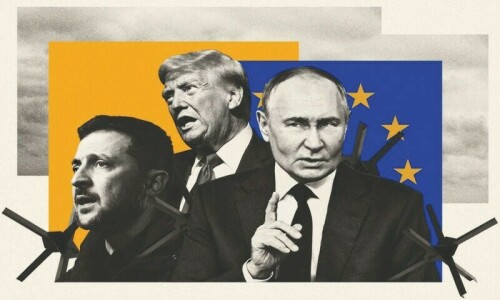The US State Department’s designation of Abdul Aziz Haqqani, brother of Sirajuddin Haqqani and one of the leaders of the feared Haqqani Network, comes at a time when Pakistan is under pressure to act against the group that was, at one time, considered part of the ‘good Taliban’ by Islamabad.
To understand the significance of this development, Dawn spoke to Michael Kugelman, South Asia associate at the Woodrow Wilson Centre and asked him how this designation may affect Pakistan’s attitude towards the Haqqanis.
Q: Does adding Aziz Haqqani to the list of Specially Designated Global Terrorists (SDGT) mean that Pakistan will now be obligated to take action against him?
A: No. This list is meant to govern how Americans deal with those that appear on it. So in effect US nationals are banned from dealing with Aziz Haqqani. Of course, if the US and Pakistan had a less dysfunctional relationship and the two shared similar interests, then we might expect his appearance on the list to prompt Pakistan to take action against him. Alas, we don’t live in such a world.
Q: Why did it take so long for the US to put Aziz on the list of SDGTs and why is Jalaluddin Haqqani, the patron of the Haqqani clan, still not on this list?
A: There’s no specific trigger that would lead someone to be added to the list. In some ways, we can assume this was in the works for awhile, given that Aziz was put on the Rewards for Justice list a year ago. Ultimately, I imagine he was put on the SDGT list because of a growing US desire to end, or at least reduce, the ‘kid gloves’ treatment. It’s no coincidence that he was put on the list not long after the US refused to certify Pakistani progress in dismantling the Haqqani Network. The US wants to show it will be tougher on Pakistan and adding arguably the top operational Haqqani leader to the list sends a strong, and appropriate, message. It’s unclear why Jalaluddin is not on the list. Many other top Haqqani leaders are. It could be that the US sees him as less of a direct and operational threat than many of his colleagues and subordinates.
Q: What does the increasing pressure on Pakistan vis a vis the Haqqanis mean in the context of the the Pakistan-brokered talks between Afghanistan and the Taliban?
A: The US really wants talks, and it may be trying to squeeze the Haqqanis and bring more pressure on them to come to the negotiating table – or to sideline them. Now that a Haqqani leader is the Number 2 Afghan Taliban leader, the Haqqani Network will be seen as an even bigger potential spoiler of talks than before. The US still wants dialogue and is looking for ways to undercut the biggest opponents of dialogue. That said, in the context of the Haqqanis, I’m not sure it will work. The bigger issue, separate from Taliban talks, is that the US arguably considers the Haqqani Network the greatest threat in Afghanistan and it will take appropriate action to highlight this threat.
Published in Dawn, August 27th, 2015
On a mobile phone? Get the Dawn Mobile App: Apple Store | Google Play














































